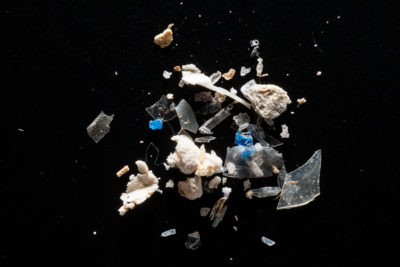The Nutrient: Dark chocolate, microplastics, and sunscreen

Research

I was driving to the clinic on Tuesday and heard the DJ on 106.3 The Bear say that eating two bars of chocolate a week was proven to decrease your risk of cardiovascular disease. All chocolate or dark chocolate, I yelled at the radio. He didn’t specify, so I found the study, which didn’t specify either because they used cocoa in supplement form, not candy bar form. The results, however, were impressive—supplementing with 500mg daily with cocoa extract reduced death from cardiovascular disease by 27%. On top of that, the study fit the requirements of “gold-standard" research (IE randomized, double-blind, placebo-controlled trial). With a population of 21,442 US adults, and a trial period of 5 years, this makes for some credible findings. Research on this scale is rarely done with nutrients, however, because it costs millions of dollars, and you can’t patent individual nutrients. It seemed too good to be true.
Who paid for this thing? Sure enough, the study was funded by Mars, who is now making Cocoa supplements alongside their Snickers, Twix, and M&Ms. Obviously Mars has a vested interest in the study results, making their involvement biased. Kind of like how pharmaceutical companies do their own research…
I wanted to hate this study. But, the reality is that this is the most exhaustive research I’ve seen on cocoa, which is a known health-promoting food. The good news is that the supplement in the study only contained cocoa extract and cocoa flavanols, so the results apply to other products and, you know, dark chocolate, as well. In other, less-biased studies, cocoa was also shown to increase blood flow, lower blood pressure, and lower risk of cardiovascular disease. To me, this means it's a good idea to supplement with cocoa powder if you’re at a high risk of developing heart disease. The rest of us could eat dark chocolate with a cocoa content above 70% and be healthier for it.
News

Microplastics are everywhere, including in your lungs. One study found plastic the size of sesame seeds in living people's lungs with the top culprits being polypropylene (from plastic packaging) and PET (from disposable plastic bottles). According to the EPA, these are "generally considered safe" but I would argue that it's safer not to have plastic in your lungs. The solution? Avoid drinking water out of plastic bottles, and limit food that comes in a plastic container. I guess it's time to start making yogurt.
Article
EWG’s 16th annual guide to sunscreen
A few notes:
- Products marketed for babies and kids were better at meeting EWG's standards for adequate sun protection, while also avoiding harmful ingredients.
- Stop using spray sunscreens. They are poorly applied, and therefore less effective. Plus they're potentially toxic when inhaled because many contain cancer-causing benzene (oxybenzone).
- Avoid products that are above SPF 50 because they're misleading, more expensive, and they aren't any better than SPF30 to 50.
Words of the week
It's a boy!
Mary and I welcomed our first child on Thursday. His name is Leland, and he's healthy, which is all a guy can ask for.







Member discussion